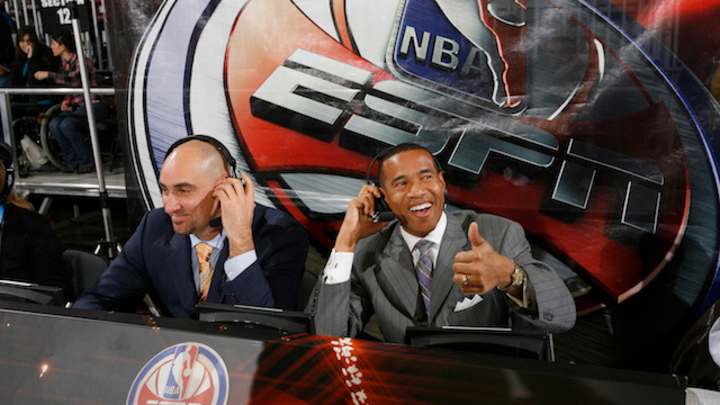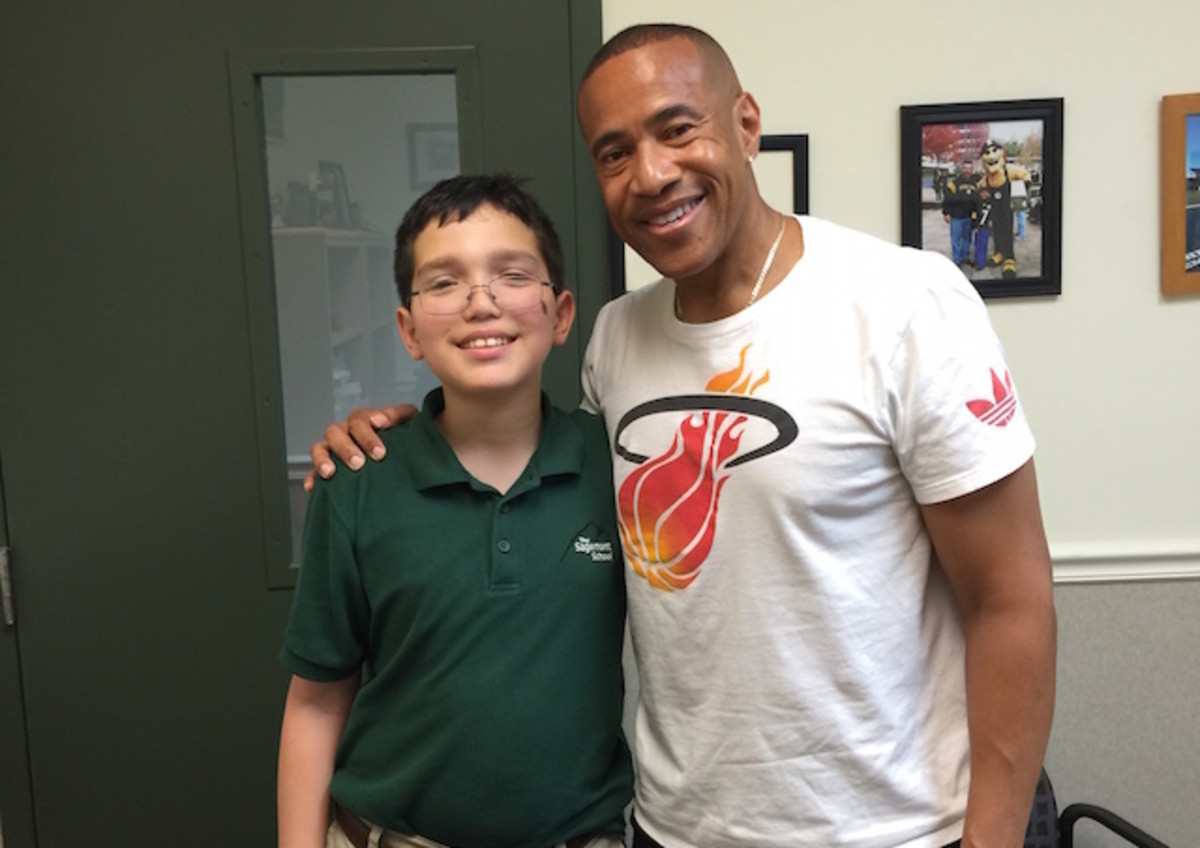Q&A: ESPN's Mark Jones on his Journey to the Broadcasting Booth

Mark Jones is a successful and versatile broadcaster for ESPN and ABC who has covered events such as the NBA Finals, the NBA Draft Lottery, and the Pan-American Games. He may be best known for calling college football games. I recently got the chance to sit down with Jones to talk about his career.
Did you always want to be a broadcaster?
I always wanted to be in sports. I loved sports, and I loved television. So I figured that I’d combine the two in my career. I’d always had a really big passion for them, so they became what I wanted to do for the rest of my life.
Which broadcasters did you like when you were growing up?
Bryant Gumbel was definitely one of them, before he switched over to doing The Today Show. Brent Musburger was one of my favorites. Another one that I looked up to was Fred Hickman when CNN used to have a half-hour nightly sportscast. Fred was different because he had kind of a hip, kind of an edgy approach to his sportscasts, which made him very unique.
How did you get your start?
I started off at an all-sports television station in Toronto, making $35 a shift, watching basketball, football, baseball or any other sporting event, and writing up highlight packages for the announcers that would eventually do the sportscast.
What do you like best about your job?
I love the interesting people that I meet. Sports is like nothing else. It’s not like a movie you can rent, it’s not like something on television that you watch that’s not sports. It’s very unique in terms of drama, storylines, surprise endings, and interesting plot twists.
What is the hardest part of your job?
Travel. I always say that they pay me to travel. I love the actual games that I call, the shows that I do — that’s the easy part. The hardest part of my job is waking up at 4:30 a.m. to drive an hour to the airport in the middle of Iowa, and then having to take two connecting flights to get home.

Kid Reporter Dylan Goldman and Mark Jones.
You have covered a wide variety of sports. Do you have a favorite?
Basketball, I love basketball. I played basketball in high school and in college. I think they’re the greatest athletes in the world, and some of the most interesting personalities also.
Is there anything you would like to broadcast that you haven’t done yet?
The Olympics. I think that would be the one thing that I would like to do before I end my sportscasting career. I’ve spoken to presidents — I’ve interviewed President Reagan, President Obama. I’ve interviewed Canadian Prime Minister Brian Mulroney. I’ve stood within inches of Fidel Castro when I did the Pan-Am Games. I’ve met world leaders, done the NBA Finals, done pretty much everything there is to cover that is considered significant except for the Olympics.
What type of preparation do you do before broadcasting a game?
I will interview a lot of the players and/or coaches when we arrive on site. I’ll watch a lot of video to prepare; I’ll read a lot of articles and newspaper clippings that appear on the players and coaches. A lot of it is also making phone calls to scouts and opposing players.
You do a lot of NBA games, but you also do play-by-play for college football. Are there similarities in broadcasting the two sports, and what are the biggest differences?
The biggest difference is that football has a lot more moving parts to it. For football I’m committing a lot more to memory, just because you have to go by players’ numbers. You can’t go by faces the way you can in basketball. In football, you’re three stories up in a press box, so you’ve got to memorize those numbers, and in football you’re committing a lot to memory.
What advice would you give kids who want to be broadcasters?
Have strong writing skills, because the way you speak is the way you write and vice versa. I think being able to draw strong pictures, even when you’re on television, is very important. Also having a strong presence and eloquence when it’s called for is important. Finally, be yourself and be organic.
(Photo credit: Joe Murphy/NBAE/Getty Images)
